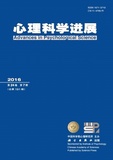In the 20th century, many psychologists who held the “doom and suffering” perspective studied the physical, cognitive, and emotional losses experienced by people in their later years. However, recent theoretical and empirical researches have challenged this generally acknowledged truth from the perspective of the “aging paradox” which recognized the positivity effect of aging on emotional processing. The positivity effect has been observed in cases where older adults preferred positive materials rather than negative materials compared to younger adults in cognitive processing. The second-generation socioemotional selectivity theories incooperated the positivity effect theory, cognitive control hypothesis, and strength and vulnerability integration three theoretical models, which describe the effects of age differences on cognitive and emotional functions and emphasize the potential role of cognitive control in the positive emotional process of older adults. However, the distinction between automatic and controlled cognitive processes depends on the allocation of attentional resources. Therefore, the cognitive control may play an important role in attention processes of positive emotional information among the elderly. In addition, the time course of attention bias may be another key factor associated with positivity effects. Finally, based on these factors accounted for, the attention stage model of cognitive control which would influence the positivity effects of aging was constructed. Future studies could explore Chinese elderly’s emotional attention processing mode, the functional mechanisms of different cognitive control subcomponents, and the treatment quality of attention, to improve the ecological validity of the studies.




